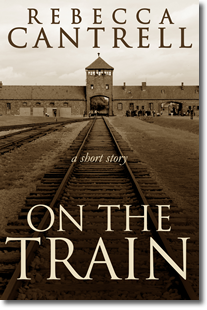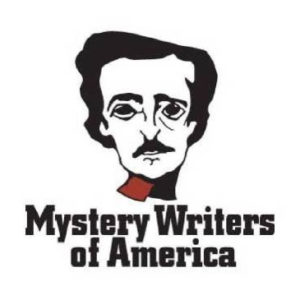Fascist ideology has turned to boot and rifle, tank and rail, pulling more and more of Europe into its borders and cleansing it of impurities and undesirables. The Nazis are organized, industrious, systematic. They capture, sort, and ship the riffraff to camps by rail. Depending on their label, they are forced to feed the war machine as laborers if they are deemed useful, or the crematorium smoke stacks if they are not.
Joachim Rosen finds himself on such a train. He survived the last camp by being careful and unremarkable, and is grimly determined to survive the next the same way. But his plans and his resolve are shaken when another prisoner recognizes him from his life before and threatens him with dangerous truth, reckless hope.
There were, after all, always those who would not comply; those who chose to resist the machine—to fight, to flee, to die. On that slow and inevitable track, Joachim must choose whether to cling to his careful plan, or reclaim his humanity with a simple, courageous, possibly fatal gesture. Time is running out. He is reaching his final destination, on the train.
This short story originally appeared in the FIRST THRILLS anthology, edited by Lee Child, and is approximately 15 pages long.
On the Train
Joachim Rosen shifted on the sole wooden bench. He was lucky to have a seat at all. Most prisoners had to lean against the sides of the train car or sit on the floor.
He pulled his tattered striped jacket closer around himself, folding his arms over the bright yellow triangle sewn on the front. Despite the afternoon sun, he shivered, but the presence of the man leaning against the side of the car next to him weighed more heavily on his mind than the cold. He looked familiar, and he did not want to meet anyone from his old life.
Out of the corner of his eye Joachim noticed the man’s pink triangle. The familiar face belonged to a homosexual. He avoided the man’s gaze.
“I know you from before.” The man pursed his lips.
Joachim tensed, but ignored him.
The man inhaled slowly. “I’m Herman Schmidt. We met at El Dorado on the Motz Strasse, in Berlin. Ernst Vogel was scheduled to sing. Remember?”
“No.” Joachim watched the white puff of air that accompanied the word. “Never been to Berlin, except to get to Oranienburg.” He glanced around the car. Had he told anyone of his shop in Berlin?
Herman stared at Joachim’s yellow triangle. “I didn’t realize you were Jewish.”
He straightened on the bench. “Always was.”
“Being different didn’t used to be so difficult.”
Both sat silently. Joachim listened to the clatter of the train’s wheels and the high scream of the wind. The metal door clanked against the side of the car. Perhaps it had fallen off once and been refastened too loosely. Through the high window fragile black limbs of bare winter trees appeared and disappeared, each tree a sign that they were one step closer to their final destination.
“My name was in someone’s address book.” Herman’s voice cut through the wind. “Some imbeciles didn’t even know enough to throw them away.”
Joachim flinched. If informers heard Herman, it could cost Joachim his life. “I don’t know what you mean.”
“I’m certain you don’t,” Herman said sarcastically. “Where are we going?”
He lied. “Don’t know. Another camp. They’re all the same.”
Herman picked at his ragged cuticles. “I’ve never been to a camp. What are they like?”
Joachim looked at him for the first time. Herman suddenly seemed plump and healthy in the clear, cold afternoon light stabbing through the window. “Bad. For you, even worse.”
Herman pointed to his pink triangle. “Because of this?”
“It’s the worst kind to have.”





